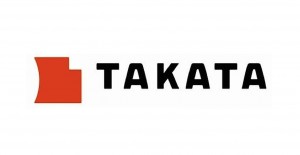The largest recall in U.S. history only continues to expand as Takata announced the recall of 3.3 million more faulty airbag inflators.
The newest action from the now bankrupt supplier covers frontal airbags in certain 2009, 2010 and 2013 Honda, Toyota, Audi, BMW, Daimler Vans, Fiat Chrysler, Ford, General Motors, Jaguar, Land Rover, Mazda, Mercedes-Benz, Mitsubishi, Nissan, Subaru and Tesla models.
Automakers will provide details about the specific models in paperwork that will be filed later this month with the National Highway Traffic Safety Administration. The expanded recall notice was posted on NHTSA’s website.
Takata uses the chemical ammonium nitrate to create a small explosion and fill air bags quickly in a crash. But the chemical can deteriorate when exposed to high humidity and temperatures over time, causing the explosion to occur too powerfully, hurling plastic and metal shrapnel into the vehicle’s cabin.
(Less than half of potentially deadly Takata airbags replaced. For the story, Click Here.)
At least 20 people have been killed worldwide and more than 180 injured since the recall began a few years ago.
The latest recalls are part of the largest series of automotive recalls in U.S. history, with 19 automakers having to recall up to 69 million inflators in 42 million vehicles. The problem brought a criminal conviction and fine against Takata and forced the Japanese company into bankruptcy protection.
The recalls, which are being managed by NHTSA, are being phased in during the next three years as older models and those in states with high humidity and temperatures getting priority in the process, although response rates to the recall have been low.
(Click Here for more about Takata’s bankruptcy filings.)
A report by an independent monitor said that as of Sept. 15, 2017, automakers have recalled 43.1 million inflators. Of those, only 18.5 million, or 43%, have been replaced even though Takata recalls began in 2001.
NHTSA has said the Takata recalls are unprecedented in size and complexity and have resulted in groundbreaking lessons that will help automakers reach their repair goals.
The agency said it is monitoring the automakers’ progress and working to expand best practices to boost completion rates. The agency also has the authority to fine automakers that don’t make recall repairs in a timely manner.
(To see more about the sale of Takata to Key Safety, Click Here.)
Currently, about 42 million vehicles are or will be recalled accounting for 69 million airbags, as federal regulators are staging their safety campaign, targeting older vehicles first due to a shortage of replacement airbag inflators. Tens of millions of other vehicles are being recalled outside the U.S.


